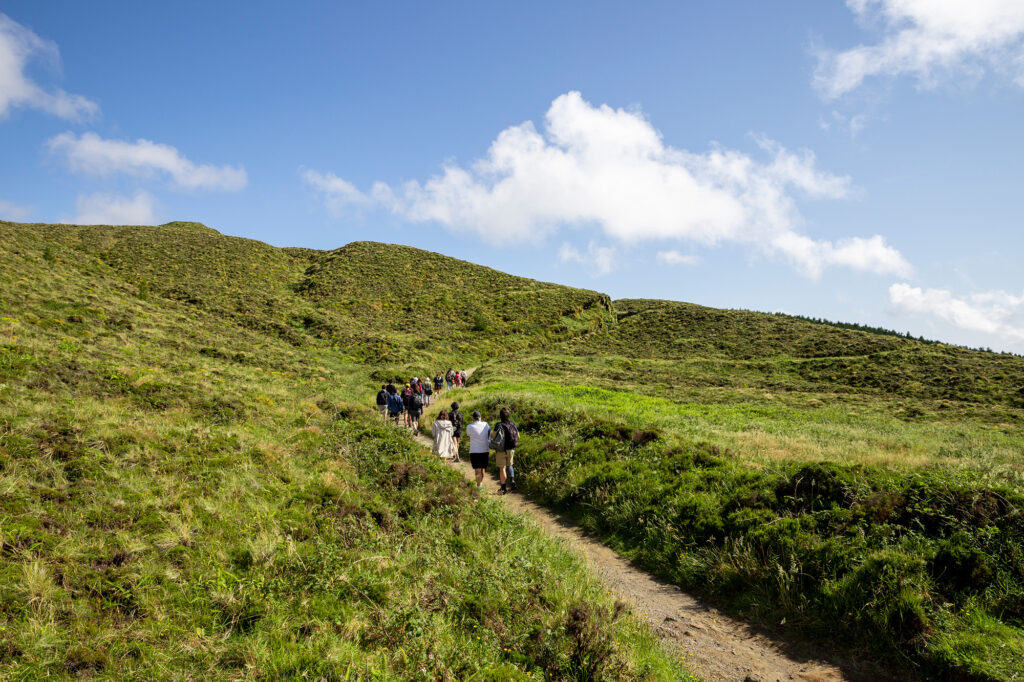
a salute to the extraordinary journey we undertook, a sojourn that set us sailing upon the anti-tourist tide. it was to the azores we ventured, those storied isles scattered like emerald fragments in the great expanse of the north atlantic.
there we were, seeking not a leisurely dalliance but rather immersion in our experimental publication project, chasing the shadowy spectre of the tax evasion industry, through the lens of offshore tour operators. eyes, minds and hearts tuned to a different frequency, one that the average wanderer may scarcely comprehend.
and what serendipity it was to uncover those elusive threads on the very pathways we wandered! like a mystery novel unravelling itself page by page, we found our clues scattered across the rugged terrain of ilha de sao miguel. one by one, they revealed themselves to us.
i am pleased to share with you the insights and observations gathered from our recent trip to the azores, where we adopted an ‘anti-tourist’ perspective to examine the locale in a fresh manner, exploring the azores beyond its popular tourist appeal and delve into the less-known facet of its offshore business, specifically related to the tax evasion industry.
as part of our ongoing experimental publication project, we sought to engage with the off-shore operators. despite a thorough examination of leaked documents for local contacts, only three entities are to be found on the island of sao miguel linked to the offshore industry, which we unexpectedly encountered near our day trip destinations.
1) on our way to the arts centre, one can come across the name ‘urrutia servicios generales’.
https://offshoreleaks.icij.org/nodes/85043307
2) while visiting the abandoned hotel, the name ‘jose romao leite braz’ surfaced.
https://offshoreleaks.icij.org/nodes/56098526
3) during our trip to the university, one can find ‘jose manuel almeida braz’.
https://offshoreleaks.icij.org/nodes/56094919
interestingly, these three names appear to constitute all of sao miguel’s involvement in the offshore industry, a far cry from the proliferation of such businesses in many other parts of europe. the absence of a significant offshore industry in the azores, suggests that the tax evasion industry has not fully infiltrated these islands.
we must, however, be cognizant of the changing global landscape regarding tax havens and offshore industries. increasing regulatory pressure from international organizations such as the eu and the oecd could significantly influence the development or curtailment of offshore activities in this region in the future.
while our excursion provided valuable insights, it also highlighted the necessity for ongoing monitoring of the azores’ economic and regulatory landscape. this will ensure that we remain abreast of changes that may impact our research, and potentially reshape the offshore industry on these islands.
indeed, it seems the offshore industry has yet to reach its tendrils into the azores, an island untouched by the usual financial whirlwinds. yet, our venture taught us that even the seemingly untouched islands can be woven into the complex fabric of our investigations.
as we reflect upon our voyage, let us remember our journey not as mere sightseers but as curious explorers unearthing a different narrative. we’ve walked the less travelled paths, painting each step with the colours of intrigue, inquiry, and insight. we’ve exchanged the typical postcards and souvenirs for a richer bounty of knowledge and understanding, a testament to the true essence of our anti-tourist ethos.
so, here’s to the roads less travelled, to the untold tales of the azores, and to us, the wanderers who dare to peer behind the veil of the ordinary. as we turn the page to our next chapter, may our spirits remain unquenched and our curiosity forever untamed.
